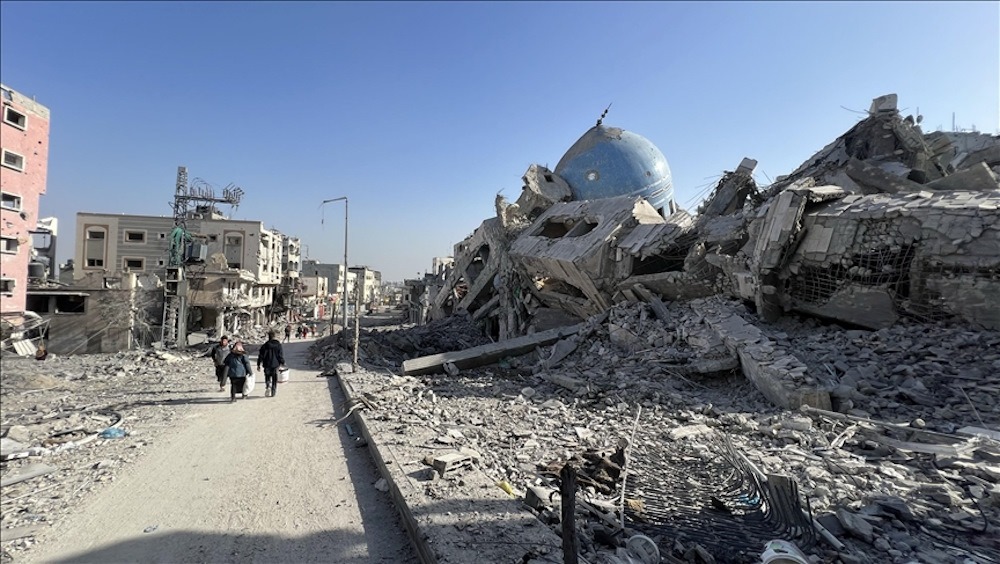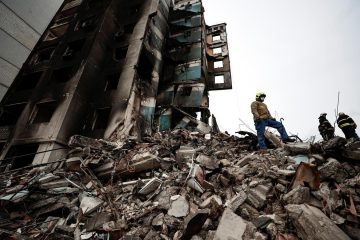US authorities to promote a cease-fire in Gaza

Two high-ranking officials from the Biden administration are embarking on a trip to the Middle East with the aim of revitalizing negotiations that have been stagnant for a long time. The negotiations revolve around a potential agreement that would establish a cease-fire in the ongoing conflict in Gaza and secure the release of Israeli hostages currently held by Hamas.
In light of recent developments, the U.S. has taken action following Biden’s public address where he outlined a three-phase agreement to secure the release of Israeli hostages in exchange for Palestinian prisoners. According to Biden, Israel has already given its consent to this proposal.
An official familiar with the talks has revealed that Central Intelligence Agency director William Burns is currently in Doha, the capital of Qatar. Additionally, White House Middle East coordinator Brett McGurk is expected to arrive in Cairo on Wednesday. Egypt and Qatar have been facilitating the indirect negotiations between Israel and Hamas regarding a potential agreement to bring an end to the conflict in Gaza.
In recent weeks, the Israeli military launched an offensive in the southern Gaza city of Rafah, resulting in a significant number of people fleeing for their safety. This week, they continued their attacks on what they claimed were Hamas targets in the central Gaza Strip, causing more Palestinians to seek refuge.
Additionally, the ongoing conflict between Israel and Lebanon’s Hezbollah movement is on the brink of escalating into a full-scale war. This is due to the recent incident where munitions launched by the Iranian-backed militant group caused fires in northern Israel. Regional officials and analysts believe that a cease-fire in Gaza is crucial in order to halt the ongoing clashes on the Lebanese border.
The discussions in Cairo and Doha this week are focused on the cease-fire proposal presented by Biden, the plans for reopening the Rafah border crossing between Gaza and Egypt, which has been closed since Israel’s Rafah offensive in May, and the future governance of Gaza.
Arab mediators reported that Biden had exerted pressure on Middle Eastern leaders to reach a deal by next week, despite acknowledging the significant differences and lack of trust between the two sides that could pose challenges to the negotiations.
The terms of the cease-fire deal mirror the ones that have been under discussion in the U.S.-backed negotiations for several months. Israel, Qatar, and Egypt reached an agreement at a summit meeting in Paris in January. However, the negotiations have been prolonged due to Israel’s ongoing military offensive in Gaza and disagreements over the details of the general principles established in Paris.
The negotiations continue to encounter familiar obstacles that have persisted for months. Israeli Prime Minister Benjamin Netanyahu, who is focused on achieving a comprehensive victory over Hamas, has made it clear that he will not agree to any deal that results in a permanent cessation of the conflict. If he were to accept a long-term truce, there is a risk of his far-right government coalition collapsing. Hamas emphasizes the importance of a deal that ensures an end to the war and an Israeli military withdrawal, enabling the reconstruction of the heavily damaged Gaza Strip.
According to certain Israeli analysts and former officials, Biden’s speech and renewed diplomatic efforts are aimed at pressuring Netanyahu to officially accept a deal that he had already agreed to privately months ago during the Paris summit. Simultaneously, the administration is also exerting pressure on Hamas to come to terms with a deal.
“According to Alon Pinkas, a former senior Israeli diplomat, Biden expressed concern that Netanyahu might back out of the Israeli proposal despite having it on their desks.” It is often believed that Netanyahu has come to a point where he must make a decisive choice.
Netanyahu has faced criticism from various quarters within Israel for prolonging the war and negotiations, with families of the hostages taken by Hamas, former officials, and political analysts expressing their discontent.
In an interview with Time Magazine published on Wednesday, Biden suggested that Netanyahu may be prolonging the war to maintain his position in office. No response was provided by the Israeli prime minister’s office when asked for a comment on Biden’s remark.
Biden faces mounting pressure to address the conflict following widespread criticism of his handling of the war from across the political spectrum.
Hamas officials presented their case to Egyptian officials, expressing their concern that the Israeli proposal does not guarantee that Israel will refrain from resuming the war after a six-week cease-fire. In addition, they countered the idea that domestic pressure in Israel or U.S. assurances alone are sufficient for them to reach an agreement on the deal.
A delegation of Palestinian factions, including Hamas, is set to arrive in Cairo this week for discussions on the cease-fire proposal, prisoner and hostage exchanges, and the future of Gaza. Hamas has not yet confirmed its attendance, while Palestinian Islamic Jihad has already arrived in Cairo.
Qatar, known for its analytical approach, responded with a measured tone regarding the ongoing negotiations. The Qatari foreign ministry spokesman, Majed al-Ansari, stated on Tuesday that the Israeli government’s stance on the principles outlined by President Biden has not been clearly expressed. He also mentioned that there has been no definitive approval from either side.
In a press briefing on Tuesday, senior Hamas official Osama Hamdan expressed his belief that Israel is seeking to extend the truce negotiations. He emphasized that the Palestinian militant group is opposed to any agreement that does not include a permanent cease-fire.
The Israeli military has escalated its operations in the central Gaza Strip this week, with airstrikes and ground troops being deployed to Al Bureij refugee camp and the nearby city of Deir al-Balah. The objective is to target Hamas in the area, according to the military. The military has reported that the targets consisted of weapons storage facilities and tunnels.
Hanan Abu Middin, a 55-year-old from Al Bureij, has recently returned to her home with her family after seeking shelter in the vicinity.
“Everyone in the area returned to their homes, and I had a strong desire to go back and tend to my plants, as well as sleep in the comfort of my own home,” she expressed. According to her, individuals in the vicinity had finally made their way back home after enduring months of conflict. This included those who had resorted to sleeping amidst the wreckage of destroyed structures.
On Tuesday, the neighborhood was once again disrupted by artillery fire, causing residents, including women, to flee in a state of panic. Some women were unable to put on their traditional hijab or Islamic head covering due to the urgency of the situation.
I made the decision to stay put, believing that the shelling was not in close proximity. However, the intensity of the shelling increased. There was a barrage of missiles coming from all directions. She stated her decision to leave for another refugee camp nearby, mentioning that she would be running with her son. “I am uncertain about the timeline for our return.”

